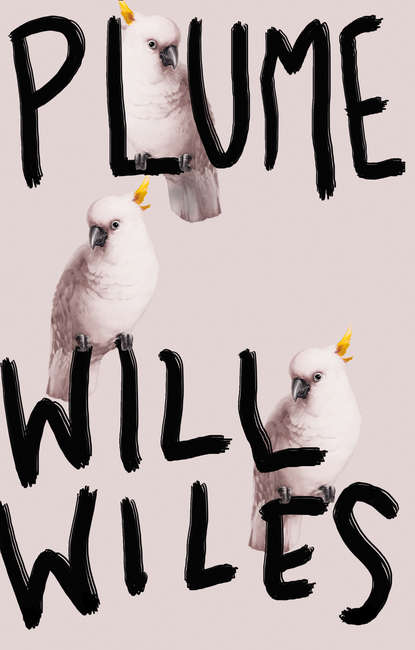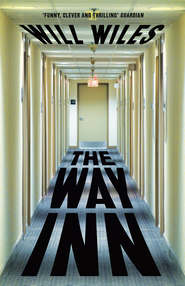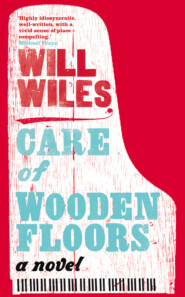По всем вопросам обращайтесь на: info@litportal.ru
(©) 2003-2024.
✖
Plume
Автор
Год написания книги
2019
Настройки чтения
Размер шрифта
Высота строк
Поля
When the bombs went off on 7 July 2005, I was living in a shared house in Fulham, and working my first job. My commute, District Line to South Kensington, took me nowhere near the bombs, and I had only just left the house when it all happened. The station was already closed when I arrived, and the pavement outside was filled with a restive and palpably upset crowd. No one knew what was going on, exactly, although the look on the faces of the staff made it obvious it was no signal failure. At that moment, an early report about a gas explosion was being shown to be tragically wrong. We were told to go home, and I did, to find one of my housemates already there and full of rolling news and internet rumour. We watched together. After about half an hour, when it was completely clear that services would not be resumed, I called the office, and the phone rang unanswered. I tried my boss’s mobile – he was at home as well.
Thinking about it now, that was the first time I took an unscheduled day off work. After a couple of hours watching the news, mostly unspeaking but for occasional expletives and blasphemies, I went to the fridge, intending to make us both a cup of tea, and saw that there were four cans of Grolsch in there, left over from the weekend. (The very thought that beer could be lying untouched, forgotten, in the fridge from Sunday until Tuesday dates this memory for me.) I took two of these cans through to the living room and was hailed as a stalwart foe of extremism and a doctor of the human spirit. The kettle boiled, and cooled, without further attention. We finished those cans, and the other two, and went out for more. When our other housemate came back, he found us both convincingly drunk.
The mood took an uncomfortable turn not long after that when my day-long drinking partner made some broad statements about Muslims, and collective responsibility; he alluded to retaliation, without specifics; and he spoke as if confident that we all shared his urge to punish, to strike back. This seemed pathetic and futile to me, the bombers having obliterated themselves, and I disagreed strenuously, impressed with my own tolerance and ardent forgiveness – rather full of it, really. The other housemate sided with me and the day ended on an ugly note of disharmony.
I was at home during the commemoration of the tenth anniversary of the bombing. I don’t recall if this was a scheduled or unscheduled absence. Next door had not yet started its renovation; I woke mid-morning and switched on the TV after opening my first can, expecting Homes Under the Hammer. But instead there was a live broadcast of the ceremonies at St Paul’s Cathedral. I watched, disturbed at the mismatch between the ancient ritual and anachronistic dress happening now, and the memories of the very modern catastrophe then. And disturbed at the unsimple range of emotions brought up by the day, the date. Shock, anger, grief, yes, yes, yes. All those, of course. But also that strange sense of liberation when the day’s pattern is broken, and the comfortable comradeship of the beers at noon, on a workday; and the unpleasant way the day had ended; because to call that ‘unpleasant’, could it be inferred that I found something pleasant before then? Which meant awful guilt. I hated the way my housemate had held the bombers’ co-religionists to blame, the way he easily swung his anger around to face a whole community, our neighbours as well as our fellow Londoners and Britons. But I wished my own reaction was that simple and stupid. In the following days I heard the sirens in the streets, felt the tension.
For a year or two after the bombs, I occasionally had nightmares of being caught in an attack or other disaster on the Tube; trying to flee down lightless tunnels, being trapped in carriages filled with smoke, bodies everywhere. In the hellish summer of 2012, those nightmares returned to my waking mind, one of several choice scenarios served up to me as I lay shaking and sweating in bed, completely awake.
We want beginnings. Start late, finish early. Get stuck in. ‘X is running late, and here I talk about how rude their PRs are’, ‘X was born in blah and spent their early years blah-de-blah’, ‘I meet X in this or that restaurant or hotel and here are three paragraphs describing that setting in not-very-amusing detail’ – these are called ‘long drop’ intros and are frowned upon.
But what if a situation can only be understood with reference to the past? What if some behaviour just appears to be senselessly self-destructive without that reference?
And what if you look into that history, knowing the key to be there, but can’t find it? It must be there, for where else could it be?
This day, then, 7 July 2005, more than ten years ago – the first day I stayed home from work and got drunk. Where the nightmares of dust and smoke and burial began. Was that the Rubicon, the tipping point? No; it was a unique and terrible day, and afterwards I went back to work as normal and it was still quite possible to leave beer in the fridge unopened and forget about it, and so it was for months or years after that. Perhaps there were underlying traits and tendencies and pathologies that could be traced back further, but at that point in my life I was only as fucked-up as the average person. Although …
More than ten years ago. Mine was a very long drop.
Alan was not dead, or trapped and blinded in a sweltering hell while rescue workers battled to reach him. He was alive, and above ground, and calling my phone.
I surveyed the pub: a big, bland railway Wetherspoon’s. It was almost empty and nearly silent, no music, no one playing fruit machines, no football, no giveaway background noises. There was only one other customer, a guy about my age, who was using his phone to take a picture of his shoes. A radio was playing in the kitchen, but it was safe to answer the call.
‘What the fuck, man?’ Alan was whispering, in a quiet place himself. There was anger in his voice, but it was not ruling over other emotions: confusion, and perhaps even concern.
‘Alan, hi.’
‘What the fuck happened to you, man?’
‘I was sure I could smell smoke. It was freaking me out.’
‘That’s … There wasn’t any smoke, man.’
‘I’m sorry.’
‘It’s Oli you want to be sorry to, you need to get here sharpish. I’m here now, said you were delayed. Where are you, are you on your way?’
‘Yes.’ About a third of a pint left.
‘We’re doing the shoot. Get here fast and I think you’ll be OK.’
‘OK. Thanks. Sorry.’
‘Oli’s a nice guy. You’ll be fine if you get here in the next five, ten minutes.’
‘Sure.’
‘Can you do that?’
‘Sure.’
I didn’t like this ‘Oli’ business one bit. Exactly as I had feared, they were bonding. I gave thought to an additional half-pint, but on this occasion moderation triumphed.
Pierce lived just off a Victorian garden square concealed behind Mile End Road – one of those hidden pockets of the East End that could be mistaken for Chelsea or Islington or my own Pimlico. For a nauseating moment I thought he might have the whole terraced house as his own, but there were two doorbells, with Pierce’s at the top. I rang, exchanged a couple of crackly words through the intercom, and heard feet on stairs.
I had seen Pierce’s picture in the newspaper profiles that had appeared before his seclusion: a round face under a shaved scalp, a combination that verged on the potatoey. But no potato had those eyes, dark and furious, always directed hard at the camera. No soulful chin-stroking or writerly gazing into space – arms crossed like a bouncer, staring you down. Only the photo on the back cover of Mile End Road differed: dark curly hair, retreating a little, glasses, the slightly affronted look of someone caught by surprise. Before he had settled his image. In Night Traffic, Pierce had speculated as to what had made him a target for muggers: he was five foot eight, a couple of inches shorter than me, and a little chunky. When he opened the door, though, he seemed at least my height and more; the slight doughiness of his frame manifested as pure presence and force. The eyes didn’t pin me down or fix on me like a laser or any of those clichés of command. It was as if he barely noticed me, catching my own gaze once, then breaking away, turning back into the hall.
‘Jack, yeah?’
‘Mr Pierce, great to meet you at last, I—’
‘Alan’s just left, surprised you didn’t see him.’
I was relieved. ‘Yes, I’m sorry I’m so late, I—’
‘Close the door, yeah? Just slam it.’ He was three steps up the stairs already, not looking back.
Pierce had the top two floors of the house – a flat more than twice the size of mine. At once I wondered if he owned or rented: the usual London question. Except that’s not the London question, not exactly. The question is: How are you here? How do you make it work? How do you supply what the city demands? More than half my salary went on the rent of my dark little flat and I dreaded the next increase. I was not making it work. How, then, did Pierce? The secret, shameful side of the London question was the accompanying desire to hear that the answerer was not making it work, that they were drowning in debt or crippled by mortgage payments or the flat had untreatable toxic mould or was the site of a recent and savage string of murders. Anything that would make one’s own failure sting a little less.
The flat was, at first, as you’d expect: I was led into a short corridor lined with knee-high piles of books, magazines, loose papers and copies of the Guardian and Standard. Like my own home. I knew at once what I’d find in the living room: a wall given over to bookshelves, either Ikea or built-in, wedged with books and decorated with a self-conscious sprinkling of postcards, invitations, photographs, mementoes and so on.
Wrong. At least two upstairs rooms had been knocked through to form Pierce’s living room, which ran all the way from the front of the house to the back, with big windows at each end. This yielded a long side wall that would have been perfect for metres of shelves. But this wall was instead filled with a huge map of London.
‘Map’ is in fact not a useful term to describe what Pierce had made. In the south, Biggin Hill and Purley were at skirting board level; the northern stretch of the M25, where it runs past Waltham Abbey, was at the ceiling cornice. The outer outline of Greater London was just about recognisable, as was the blue vein of the Thames where it widened in the east, and a few exposed green patches at Richmond, Blackheath, Epping and elsewhere. The rest of the city was obscured by a thick aggregation of matter, which lifted and shivered when Pierce threw open the door and walked into the room. It was a layer of sticky notes, index cards and clippings – several layers, from the look of it, anchored by hundreds of coloured thumb-tacks. Further notes encrusted the wall to the left and right of the map; the room also contained four metal filing cabinets and the usual living-space furniture: a three-piece suite facing a telly at one end of the room, a dining table and chairs at the other.
‘Wow,’ I said.
‘The map?’ Pierce said with a pained expression. ‘I’ve been meaning to take it down.’
‘What? Why? What is it for?’
He didn’t answer, and instead waved an arm in the direction of the cracked brown leather sofa. ‘Sit. Sit. Coffee? Tea?’
‘Coffee would be great,’ I said, taking off my coat. I had to move a couple of magazines off the sofa in order to make a place for me to sit: a TLS and a Time Out. But before I sat I remembered the need for colour. Ignore Pierce’s instruction, check out the room. I approached the map.
The cacophony of information from the wall was overwhelming, and the accumulated ephemera was rarely less than five layers deep, obscuring most recognisable features. I traced the line of the river upstream until I found Pimlico. Notes on the surface included ‘Monster Tavern’, ‘Millbank Prison – Austr.’ and ‘Dolphin Square sex ring’. These were all scrawled in black and red biro on small Post-its and snippets of notepaper, some no larger than postage stamps. But beneath them was a much larger note, an index card inscribed with fat black marker pen, obviously one of the first things pinned to the wall when the map was new. To read it I had to move other accretions out of the way, revealing the letters one by one. It said: MISTRESS CITY.
‘Bick,’ Pierce said, making me jump. An orange Post-it, its adhesive exhausted, floated to the floor; I saw one or two were already there. ‘Unusual name – as in Bic ballpoints?’
‘With a k,’ I said, realising that Pierce must know the spelling perfectly well, having seen my name in emails. ‘As in Bicker. Or Bickle.’
‘Ha,’ Pierce said – definitely said, spoken, not a laugh. ‘“You talkin’ to me?”’
‘That’s why I’m here.’
‘It’s a pity it’s not Bic like the pens,’ Pierce said. He spoke with his back to me, busy making coffee in a small kitchen through an arch. ‘That would be a good name for a writer. I’m interested in nominative determinism. The idea that your name has power, that it influences what you choose to do in life. You’re, I don’t know, Mr Heal, so you become a doctor.’
Should I be recording this? I wondered. I fumbled one of my digital voice recorders out of my bag, switched it on, and dropped it into the breast pocket of my shirt. ‘Like our mutual friend,’ I said.







